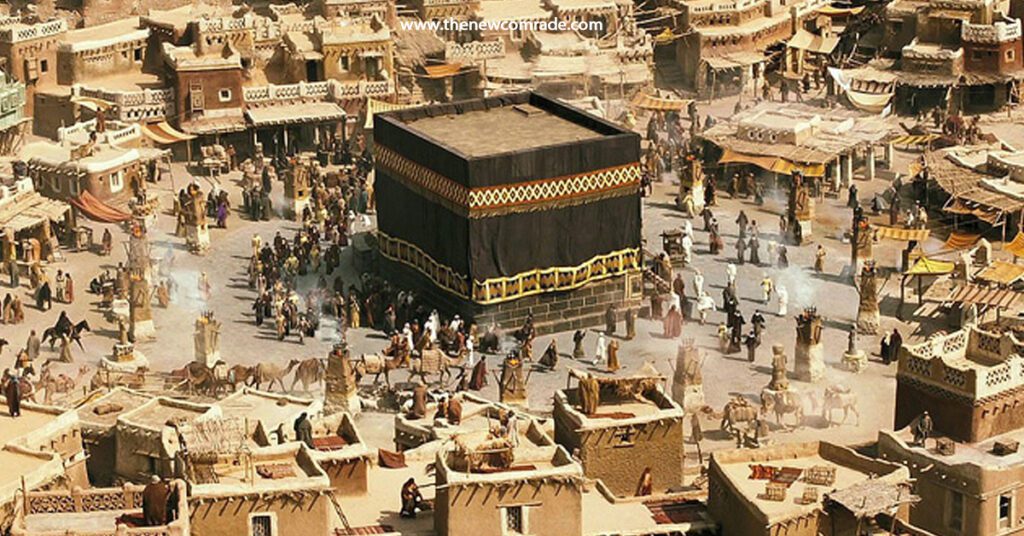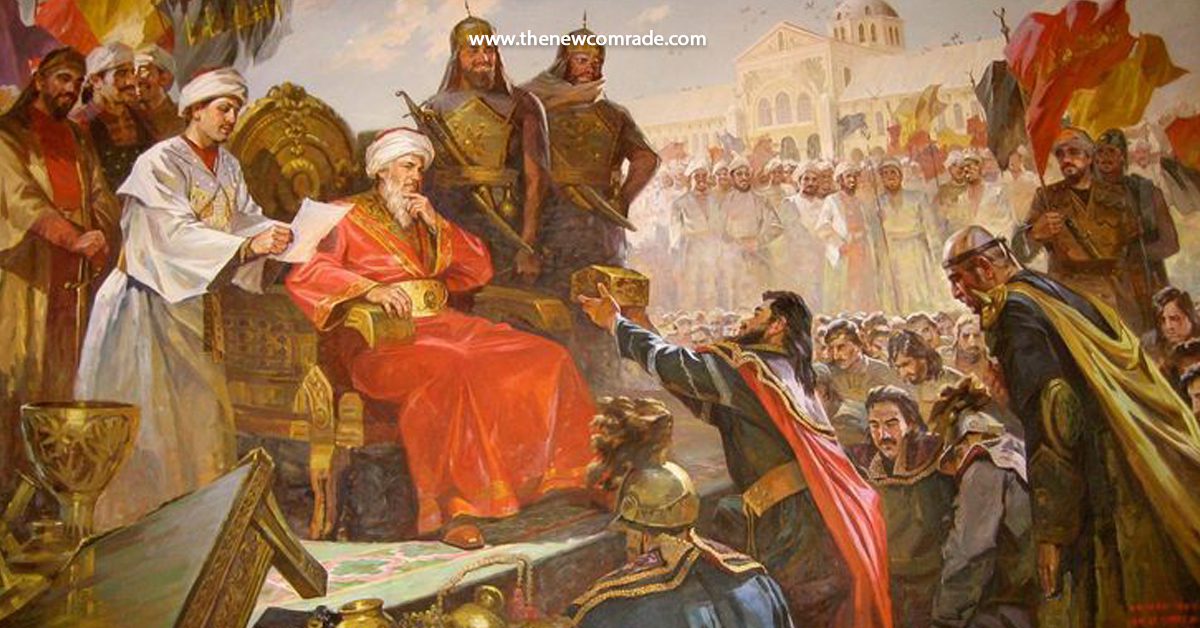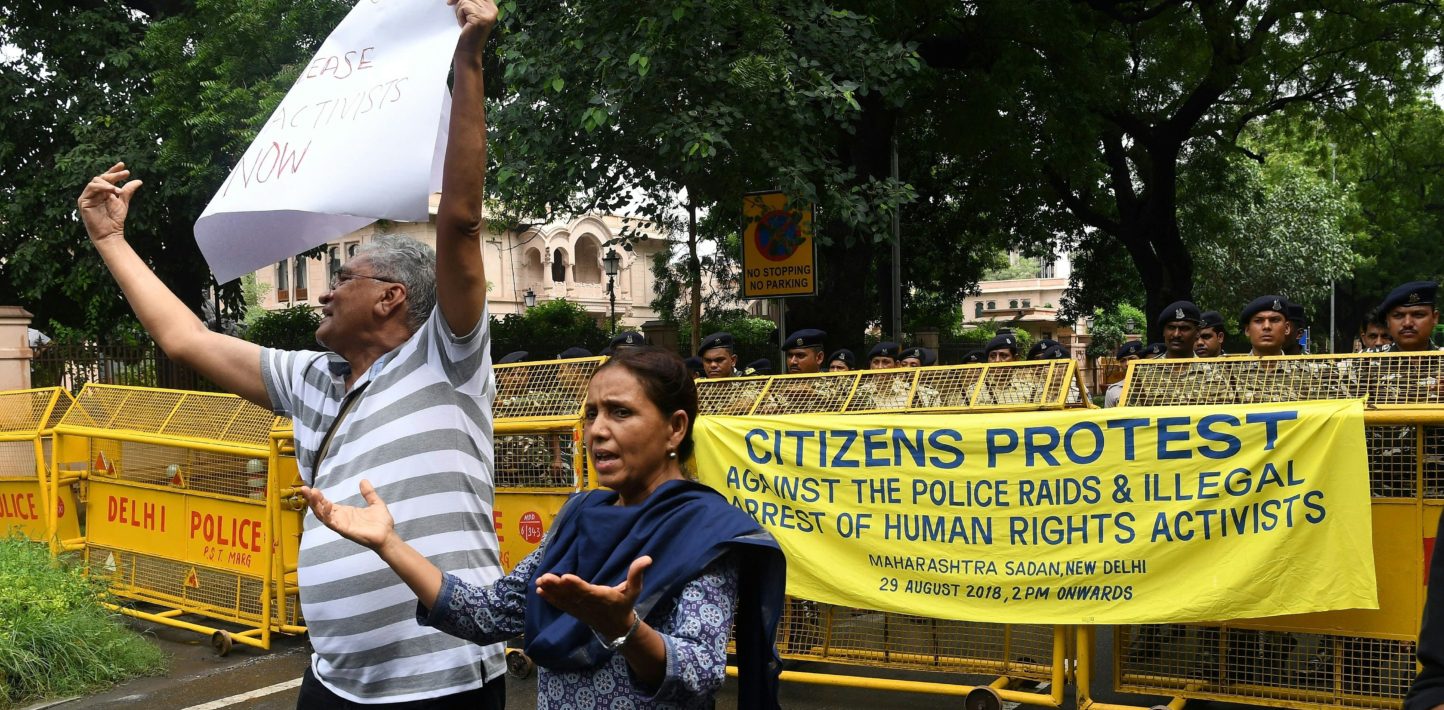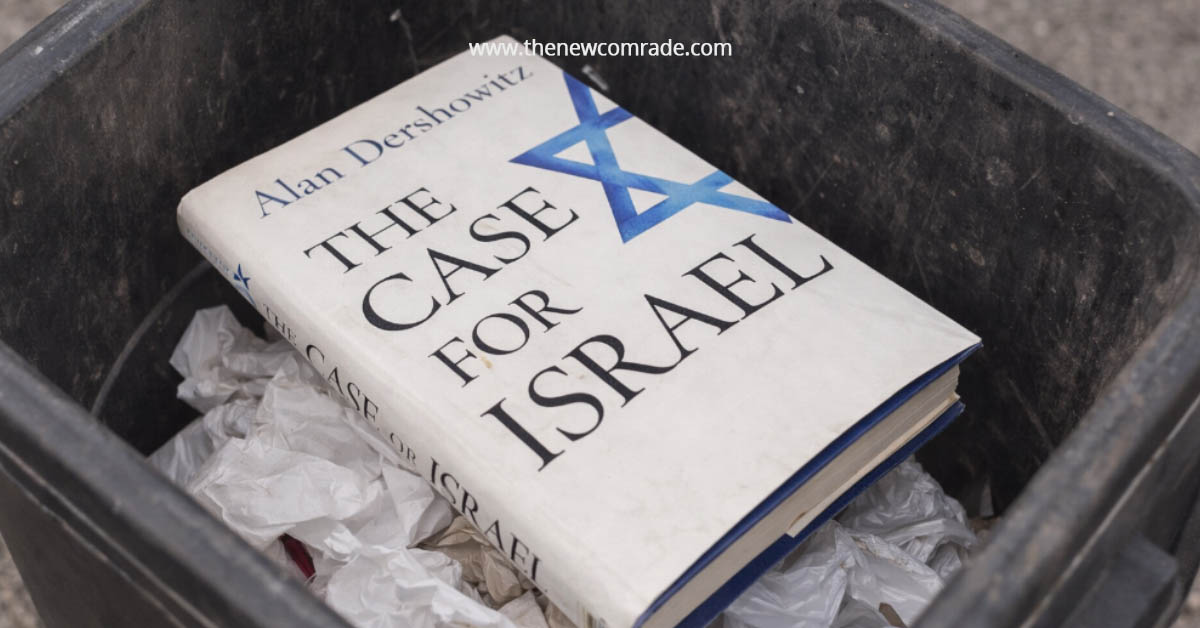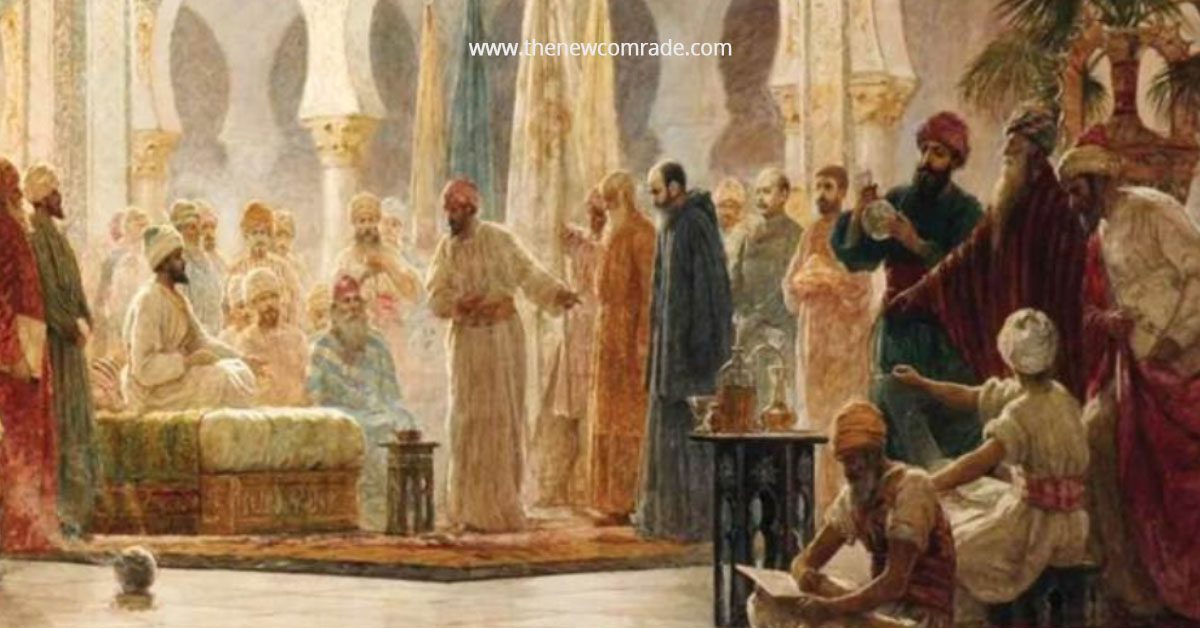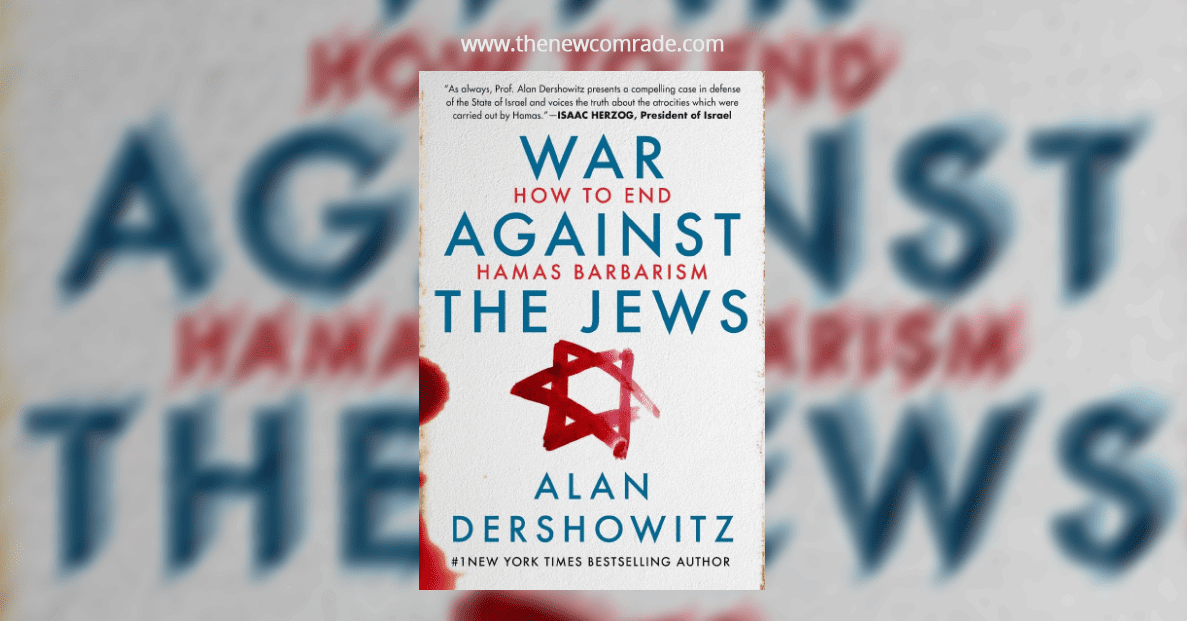Q: A year and a half ago we spoke about the emerging world order, and I plan to build upon that conversation we had. It was post-October 7 and world looked pretty bleak. It seems to me, based on what we discussed, that we were not only moving to a new era, an emerging world order in developing, but also it seemed like that the Trump presidency is an accelerant to a different type of order. I wish to explore that now. I want to explore whether the US term of globalism, this period of globalism, is now over. We talked last time about how Gaza exposes the hollowness of this international rules-based order. I want to explore how that transpires in the real world. Of course, Netanyahu has created a schism across the region and conducted multiple wars and bombing campaigns. How does that impact what we understand to be Muslim world autonomy? I have been reading your book The First Spring which seemed to me as an expression or an understanding of Prophetic biography from a geopolitical perspective. 14 centuries ago Allah, in the bleakest moment in Makkah Mukarramah where the Quraysh were subjecting the Muslim community to sorts of persecution, sends a message about international politics and world order to Prophet ﷺ and His companions.
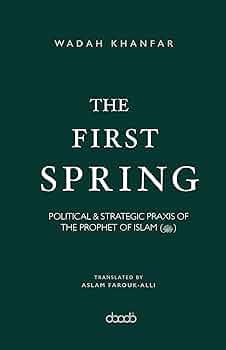
Wadah Khanfar: The 23 years of Prophetic ﷺ action, a prophetic message and mission led to the biggest geopolitical shift in history. For over 700 years, world had a clear order between Persians and Romans – in different variations and dynasties. Basically, these were the two major powers that controlled the international system – a bipolar system – that did not allow much to evolve. This bipolar system came to its end. Why? Not because the Romans were weak, or the Persians were weak, but because the civilisational cycle came to an end. This is important to notice, and I will link it now with the current reality.
Any empire should have moral standards, it should have values and principles to justify its presence and to be able to connect the citizens together with the sovereignty of the entity itself. Persian Empire was losing all the above mentioned for many reasons, as was the Roman Empire. Civilisational series was getting exhausted – values, ideals, spiritual manifestations in both sides were going through a huge crisis.
Second, in that bipolar order, the two empires had, both, consumed their energies. That underlines the end of a civilisational cycle. Such changes are rare instances in history.
The current moment in history resembles one such instance. It is going to create unbelievable change in everything we know about ourselves and the world. When Allah SWT began revelation of Quran to Prophet ﷺ it was 610 CE. At the time, Makkah Mukarramah was a very small town of no significance in the world order. I do not think that Persians or Romans bothered about what was happening in Makkah Mukarramah, for the same reason. See what happened thereafter! It was 8 years after the beginning of the then “world war”, which had started in 602 CE between Persians and Romans. They fought on every front – in Anatolia, in Northern Africa, in Armenia, in Levant, etc. In the year 614 AD, Persians conquered Jerusalem, which was 3 to 4 years after revelation! That was a significant moment in history – Jerusalem was for the Byzantine Empire, a holy city and source of its legitimacy. Orthodox church had that legitimacy versus the Catholic church of the Western Romans because of Jerusalem. Then the Quran reveals to Prophet ﷺ in Makkah Mukarramah telling him that ‘Romans have been defeated’ (30:1). Allah elaborates – ‘In the closest of land to you’ (30:2). That meant Jerusalem – closest to Hejaz at that time. And that they would be victorious within nine years (30:3-4). And to Prophet ﷺ it meant that the world order as then known for centuries was collapsing and that He needed to be prepared because ‘couple of years’ implied being able to participate in shaping or establishing the new world order. As such, it was a message from heaven to Prophet ﷺ telling him that ‘what you are going to do from now till the end of this war between Persians and Romans is necessary for you to establish the new order’. It opened his mind to establish a centre of power. He could not simply continue preaching Quraysh forever. As such we witness the Prophetic migration thereafter and emergence of a centre of power in Madinah Munawwarah. Course of events in Madinah Munawwarah proceeded in unification and aggregation of power and, after that, started to project power against the Romans who were the victorious in the war – not the Persians, which is quite amusing. By a normal procedure one could attack the Persians, because they were weaker after their defeat in the war, in 627 CE. Instead, Prophet ﷺ faced off the conquerors, the victorious – he hit them in Mu’tah, then in Tabuk and then in Osamah b. Zayd’s expedition – three military expeditions directed against the Byzantine / Eastern Roman forces, and not against the Persian forces. To establish a new order, it was necessary to immediately pursue the one who is victorious from a major recent war, because they are still recovering. One ought not allow them to recover and establish their order. Persian dominion was conquered with much more ease than the Roman territories in Levant and North Africa. This is the importance of Surah Ar Rum. Those verses were a strategic guidance for a geopolitical confrontation that made Prophet ﷺ aware of his own strategy to inherit the order when it is going to collapse and when the expediencies emerge to rebuild it.
Q: Usually, we almost place Prophetic biography in an accidental logic. Makkan elite persecute Prophet ﷺ. He looks for a power base and finds Madinah Munawwarah. As such, a lot in this narrative is determined by weakness and lack of a base. You are now arguing that Allah SWT had said to Prophet ﷺ about a world order changing and that He needed to prepare himself to prepare a power base and exploit that situation. Am I exaggerating the point or is that exactly what you are saying?
Wadah Khanfar: There was a very clear strategy that controlled Prophet ﷺ expeditions, alliances, military activities during the Madinian period. It is not clear for some people when they think that Prophet ﷺ was in Madinah Munawwarah and that the Quraysh came to attack him and he had to respond to them. However, Prophet Muhammad ﷺ, from the moment he arrived in Madinah Munawwarah, started building strategic foundations for a polity, an entity, viz. “ummah”, to fill the vacuum that was to emerge when Makkah Mukarramah was conquered. Prophet ﷺ six months after his arrival in Madinah Munawwarah sends a military expedition to the coast of the Red Sea to interrupt trade routes of Quraysh with Levant. Why? Because Quran told him earlier in simple and direct terms about Quraysh. Surah Quraysh was telling Muhammad ﷺ a very simple fact – Quraysh has an ilaaf, i.e. pacts with other tribes (106:1). Allah is directing Prophet’s ﷺ attention to the treaties that Quraysh has with the tribes on their trade routes. He elaborates – ‘They should worship the lord of this house, who fed them out of hunger and gives them security from fear’ (106:4-6). Allah SWT tells about two sources of power for Quraysh. First, the pacts that Quraysh has with tribes along their trade routes.
Second, the Holy Ka’bah. Prophet ﷺ, up to Battle of Trench of 5 AH, targeted the first pillar, i.e. trade and treaties with tribes. There were four tribes along the coastal route towards Levant from Makkah Mukarramah. Prophet ﷺ approached all of them for his own treaties. He established an ‘Ilaaf al-Madinah‘. Second, after Battle of Trench, he also targeted the other pillar of Makkan strength, viz. custodianship of Holy Ka’bah, by going to Hudaybiyah and telling them, “I am coming for Omrah – would you allow me or not?” If they allow him, then they recognise his power and force, which they do not want to do. If they refuse, they are going to break one of the most sacred elements of their custodianship of Makkah. Their basic premise of this custodianship was the promise that they would take care of Ka’bah, and also that Ka’bah was free for everyone to come and visit. So, if Quraysh bars Prophet ﷺ, then other tribes too would say, ‘This is for everyone. How could anyone coming for Hajj or Omrah be barred!’ Many tribes coming together had never happened hitherto in Arabia.
Prophet ﷺ also offered them the solution to the dilemma, in form of Hudaybiyah pact. This was a manoeuvre to make Quraysh aware of the fact that he is now a centre of power. He is not just any other entity they can deal with, not just another tribe or other group. This was strategic. But the source of it is from Qur’an. It was consistent and not something that could be brushed as coincidental or reactive. On the other side, Quraysh had no strategy. Quraysh had only one stupid strategy, viz. ‘security’, ‘attack’. Get angry, fight and he will drive them into the fight. When the biography mentions the reason of battle of Badr subsequent to Quraysh’s attack of Prophet ﷺ in Madinah Munawwarah, we generally fail to notice that Prophet ﷺ wanted them to come. Prior to that he had targeted their trade caravans to Levant!. Ask your enemy to come forward and then after that you hit him hard. That is how ‘Badr’ was a major battle, because it was the first manifestation of a new centre of power. Progressing from perception of being a mere refugee group, they showed up a very organised army able to project power and win a battle. After Battle of Badr, Prophet ﷺ starts making alliances with tribes who hitherto were with Quraysh but now could perceive Quraysh power waning and Muhammad ﷺ camp rising.
Q: Your point is that we can make a very clear comparison with the moment of the revelation and this emerging change of the world order and contemporary situation of changing world order. I want to indulge you a little bit more with Prophetic biography. You argue that the idea of Muslim ummah was established when a power base was established in Madinah Munawwarah. You say that ummah is a geopolitical association that is connected to power. Power is at its root. Explain that concept of ‘ummah’. Commonly, ummah is a spiritual connection with Muslims around the world.
Wadah Khanfar: First usage of the concept of ummah was in the charter of Madinah Munawwarah, in 1 AH. Prophet ﷺ did not use the word ‘state’ or ’empire’. He used the word ‘ummah’. He said that the people who have signed this constitution because the charter of Madinah Munawwarah was between people who signed it, as a constitution, as one ‘ummah’. Alliance forged by it between Muslims and non-Muslims – citizens of the state of Madinah Munawwarah. ‘Ummah’ is the description of that entity created by Prophet ﷺ himself. Later, after he passed away, Prophet’s companions RA did not also call it ‘state’ – they called it khilafah meaning ‘succession of Prophet ﷺ’, implying succession of what Prophet ﷺ has established. As such, concept of ummah became the DNA of that political entity. It was given that the ummah is that kind of structure formed with the guidance of Islam regardless, of course, of the citizens of the ummah, if they were Muslims or not. In Levant, Mesopotamia Egypt, etc. 60 to 70% of the population were non-Muslims for about two centuries after Muslim conquest. As such, ummah was not entirely Muslims. It was not a spiritual bond amongst Muslims. It is beside the fact that it could be a spiritual bond subjectively. But its most important element is an architecture that describes a sphere of influence, a sphere of political power and that is what we call ‘ummah’. Manifestation of that over 13 centuries was the concept of khilafah. Concept of ‘nation-state’ is alien to us; emerging in the West and imposed upon us. Concept of ‘ummah’ is original to us, native to our culture. When the concept of nation-state was imposed upon us after the first world war replacing 13 centuries of political consensus in the form of khilafa, total loss of direction happened for the ‘ummah’. ‘Nation-state’ throws in many questions; for instance, what kind of bond should it have with the rest? Because, without ummah, every nation-state becomes individually interested in its national interests, which means there is no bond, there is no coordination, there is no geopolitical centre. It naturally comes down that there is no national interest amongst all of them and this is why today we stand weak, and we will continue to be weak because the architecture itself is wrong and it is bound to produce weakness.
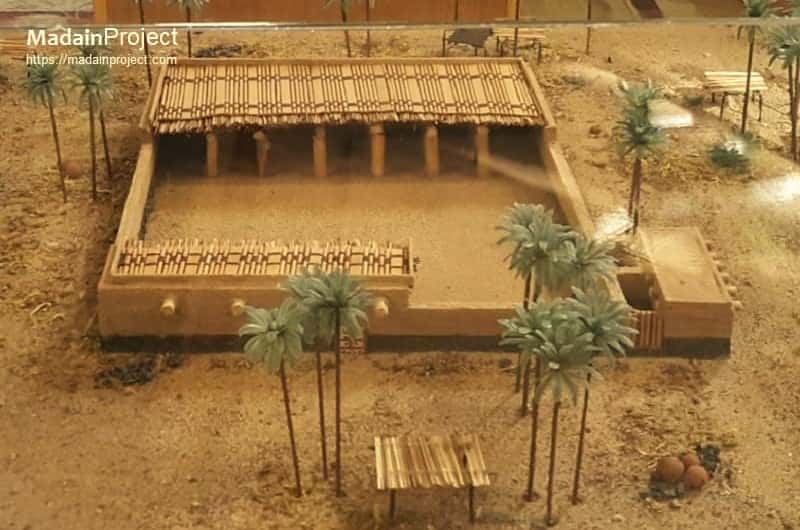
Q: If I lived in this political architecture that you call an ummah what would be the impact it had on my daily life ?
Wadah Khanfar: First and most important thing, citizenship of that architecture is to the meta entity – to the ummah – not to the ‘state’ that you have been born in. I give example of the traveler – Ibn Battuta – who travelled in the beginning of 14th century CE from Tangiers in present-day Morocco up to Maldives and he crossed thousands of miles. He crossed through many political entities and most of these political entities, Muslim entities, were fighting against and they were not in alliance with each other. However, he, as a human, was not classified as ‘someone from Tangiers’. Wherever he went he was treated as a ‘citizen’ of that entity, in terms of contemporary usage. After he lived for a period in Delhi, the Sultan of Delhi sent him as an ambassador to China. When he arrived in Maldives, he became a judge in Maldives. When he arrived in other places, he was made a judgeor placed in some official position. Why? He was educated. No one questioned his ‘citizenship’. ‘Citizenship’, as far as you are part of this vast meta structure called ummah, does not matter who controls the territory you came from. It liberated human being from the hegemony of the state. Today we are ‘citizens’ and ‘state’ has the upper hand above us and the state has huge power over everything we do. State could deprive people from their citizenship. State could reduce their privileges, could confiscate their wealth, etc. Previously, we were not part of that kind of a political entity. We were part of this great umbrella called ummah. No state had the power over people. Ibu Khaldun, a great scholar, for example, born in Tunis went to Cairo and became the chief justice there. No one there said “sorry, but he is not Egyptian”. Why? because Ibn Khaldun is Ibn Khaldun – it does not matter. Take the matter of other scholars; for example, what is your ‘madhab’ (jurisprudential school), you might say “I am Hanafi”. When we consider its founder Imam Abu Hanifah, it does not matter to us, if he was ‘Persian’ or ‘Arab’. We would never bother to ask this question. By today’s norm he would be classified as ‘Iranian’. You might not follow an Iranian scholar. Maybe Iranians would follow Iranian scholar. Imam Bukhari came from present-day Uzbekistan, but he was not Uzbek. If I did not read about where he was born, I would not really bother where he was born. He is not an Uzbek today within the concept of Uzbek nationalism. He is a grand ‘muhaddith‘ for every one of us to embrace and to learn from. In this manner, we deprived ourselves from a reservoir of a huge cultural, philosophical and religious knowledge when we start dividing ourselves and then the allegiance of our scholars, the allegiance of our intellectuals, the political elite and human citizens all become to their ‘state’ rather than to this vast meta structure.
Q: I have had guests on my show, and I asked them to talk about the bleak period we are living in at the moment and many of them respond that we have always had ups and downs. We have had Mongol invasion, crusaders, etc. We have had political crises, territories taken away from Muslims and we always come back. Do you see any tangible difference between the period we are living in now and these ebbs and flows within the Muslim ummah.
Wadah Khanfar: Massive. There is no comparison. Let me take the examples you mentioned. When we had ‘ummah’ in a geopolitical sense, crusaders came, and they conquered territories in Levant. Within that period, we had two major states dividing power in the Muslim world – Abbasids out of Baghdad and Obaydids out of Cairo – fighting against each other. Later, when they really saw what the crusaders were doing, Nuruddin Zengi and, after him, Salahuddin Ayyubi came to reside in Cairo to handle the political system in Cairo and establish a unity between two entities that were very diverse and attack crusaders. Such was the recovery of every crisis including Mongols . After the huge and massive genocide to the toll of millions they committed, they were defeated not by the Abbasid state, but by the Mamluks of Cairo. The concept of ‘ummah’ created a sense of urgency when it came to invasions and a sense of unification and unity when it came to defending the sphere of geopolitics called ‘ummah’. In the current reality we have nation-states whereby when something happens in Palestine any state in the region would say we are very sad for what is happening, but we cannot do anything about it. Assumed interests of particular state stays above common interests of the community or humanity at large. This kind of fragmentation and partition basically made this concept of collective security disappear. Jordanian, Lebanese, Syrian, Egyptian – their primary concern would be their perceived “national security”. Of course, the concept of nation-state, in the sense I argue, is not describing the current states in Arab world. For instance, Germans could be made a nation, French could be bracketed as a nation, and they have their own state they call it nation state. However, for Arab world consisting currently of 23 states, you cannot call each one of them a nation state because Arabs are a nation by that sense. But they are divided to 23 states. We see trials of manufacturing new identities for each one of them, which fails dismally. This, of course, after 100 years now of a new map in the region. I can say the structure forced upon us by the French and the British after the first world war has failed for us. If something after 100 years does not operate, do you expect another 100 years it will be successful? This fragmentation led to civil wars, to sectarian wars, to weakness and to poverty. I could easily say that this experiment over one century has failed, and we need to think about things beyond this fragmentation and the partition.
Q: Are you saying that the reason why we are different, this period is different to all of those periods, those bleak periods in Muslim history, is that ‘ummah’, as a concept of geopolitical power, is missing within our mindset?
Wadah Khanfar: Not only in the mindset, in the physical reality too. For example, we have an attempt to establish something called Arab League. It failed dismally. Organisation of Islamic Conference which became organisation of Islamic Cooperation. It failed dismally. For example, in the dealing with Palestine subject right now, OIC and the Arab League issued many statements, established many committees. Nothing happened. Their performance basically was very weak. Why? Because each one of them is calculating the perceived individual interest of the state rather than the collective. There is no collective sense of security. In a state of partition, you will not go beyond certain boundaries. So, their priorities would be to not upset Americans or invoke Zionist wrath or create troubles for yourself with the western world and therefore you will accept a massacre or a genocide taking place in Gaza. You could be even complicit. You could even support the Zionists by trade. You could even work with them and, I heard this from many politicians – “Our main target is to protect our state”.
Q: I want to talk about the contemporary period, and we did discuss the shift in the world order but that was pre-Trump. A lot has happened with Donald Trump’s presidency. What do you believe is shifting in this international system. Do you believe that Donald Trump is, in a way, an accelerant. Is he upending this post-1945 order that America created.
Wadah Khanfar: Let me come back to this current system. Compare it to the system that Prophet ﷺ did have the opportunity, that he had after the ‘world war’ between the Persians and the Romans. The current reality has, in the same moment, brought the end of two systems- a civilisational cycle and the world order. Let me explain this: the civilisation cycle of the West started in 1492 AD. I chose 1492 because this is the year when Columbus arrived in Latin America, followed by Portuguese going around Muslim world to Asia. From that moment we had many world orders. We had the world order driven by the Spanish and the Portuguese. After that, the Dutch. After that, the French and then the British and then the Americans. These were all within the same civilisational cycle. The driving force behind that civilisational rise – technology, art, enlightenment, etc. – core of that was a combination between Protestant culture – which gave capitalism, liberalism and many ideas claiming rule of law, equality, justice and so on. In the current reality, west is giving up the two pillars that the western civilisation established itself upon – the religious concept and the spiritual concept. This front of theirs is the worst ever in history – from the moment that the Roman Empire embraced Christianity. Second, the pillars of international law, justice, equality etc. In this front they have contradicted their stated positions. It been rendered a joke. The west is fighting against international law. ICC, ICJ when it comes to Zionists. Concepts of equality, justice, liberty, etc. is becoming a very distant memory. When their values evaporate it means their civilisation itself is very deeply sick. World orders within the civilisation were many. Cycle of a civilisation could take 300 years. But the cycle of the world order could take 30, 40, 50 years. We had the first world war. After that we had a world order. After the second world war another world order called the cold war. Then we had the post-cold war. So, we had three world orders at least in the one century. We had many others in the previous centuries. Now all these are coming to an end. The civilisational carrier of the order is weakened and the order is cracked. China is rising. China is not a newcomer to the scene. China is the oldest organised power. An empire which has 4,000 – 5,000 years of history and by China, I mean traditionally used to be the centre of trade. 30% of the world economy before the 17th century was controlled by China. China is not something that just happened to land from the moon. China is reclaiming its position in the world order, and we have the Americans who represent the last manifestation of the western hegemony very scared to lose their position. They are trying to fight whatever possible war against China economically, and maybe in the future even militarily, in order to prevent China from regaining its position which the Chinese think that they are entitled to have. This world order with unilateral power the Americans had is now going down and a new thing is going to be established. From now until then we will have a lot of transformation from a civilisation point of view, the ideals, the values, the culture, the law. International law is going to be debated, argued about. New ideas should be presented because the previous ones are becoming irrelevant. From the concept of world balance of power which means the world order. We have a lot to go through because if you think about what America is doing now. America is supposed to be the most powerful entity in the world with the most powerful army that humanity has ever seen. Then they try the tactics visible now, which are desperate measures to keep themselves in place, which implies that they are losing. First, the American overreach or projection of power goes beyond certain limits. Then, it invokes reaction. Second, there are tactical decisions taken rather than strategic ones. For example, when Trump says to Europe, you need to spend 5% of your budget on arming yourselves. After 5 to 10 years when Europe is powerful enough, why would they listen to you? America controlled Europe because America is much more powerful than Europe and Europe was in need of American power. If tomorrow France and Germany have such a powerful army, why would they follow your instructions when it comes to Russia, China or anyone else. So, I think the America is losing power and alliances. They are losing Japan, which is amusing. Japan has been, after the second world war, a loyal ally. Then they push Japan to take a position on China for the future – “if we are going to fight with China are you siding with us or against us”. They are going to think of other options. They are pushing all Asian countries to feel that they are burden on them. Asia has its own logic. Asia knows China for thousands of years. They know exactly what China is. They know the danger of Chinese manifestation of power and they know the benefits of Chinese economic race. ASEAN has reached some form of agreement with China. They are forcing countries like Philippines and others to take stance on South China Sea. While you are trying to push China out of its own sphere of influence. Imagine if tomorrow China starts establishing an island opposite to New York 60 – 70 kilometres from New York and puts its own power there, will America be tolerant to that? America was not tolerant to the Soviet Union sending their missiles to Cuba. That had put the world on the brink of a nuclear war. Now America is going to vicinity of China and establishing their power and sending submarines and establishing your military alliances like AUKUS with the Australia and Britain. Then they state that they expect China to be polite and welcoming, i.e. they are going to give up their sovereignty. China is, understandably, arming themselves to prepare for war and building their armies. This way America is losing its mind, and they are going in a way where they elected Trump, number one, and second, they are implementing policies which are mechanisms of disturbances, unpredictability and chaos. This is not the behaviour of the superpower, rather a manifestation of psychological instability.
To be continued..

(Wadah Khanfar is the former Director-general of Al-Jazeera Media Network and now head of the Al-Sharq Forum. He was recognised by Foreign Policy magazine in 2011 as one of the world’s top 100 thinkers.)
Disclaimer: The opinions expressed in this article are solely the author’s and do not neccessarily reflect the opinions or beliefs of the website and its affiliates.
